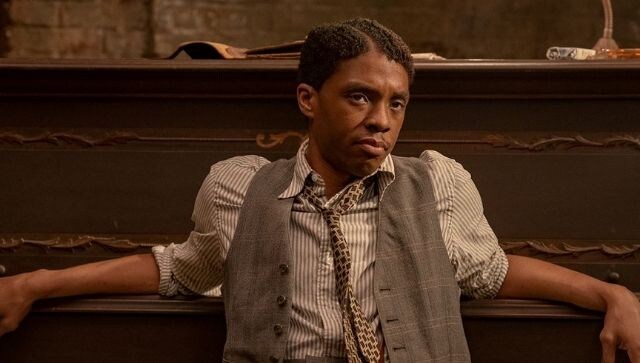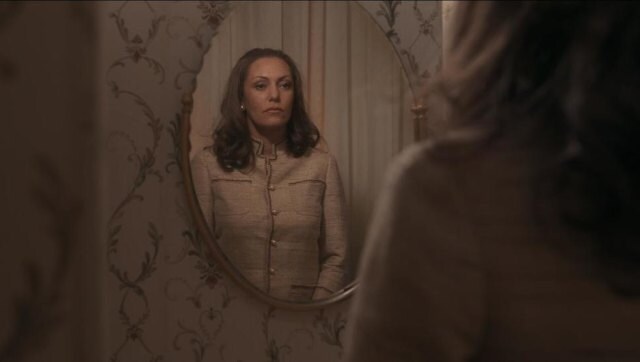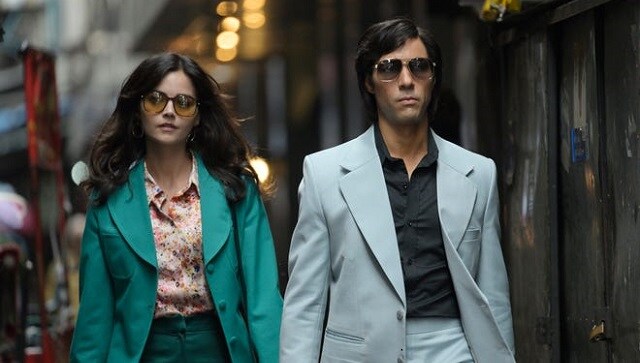Chadwick Boseman: Portrait of an Artist — Netflix special gives an instructive insight into late actor's professional life
Chadwick Boseman: Portrait of an Artist is Netflix’s tribute to the late actor, one of the industry’s most well-liked figures.

Viola Davis is easily one of the greatest actors alive — few critics would fight me on this, I am sure. And it’s not just Widows or Fences or Doubt or all the other great movies she’s been in, or the fact that she is one of the few people to win the “triple crown” of acting (Oscar plus Emmy plus Golden Globe). It’s also how she immediately elevates considerably lesser, instant-popcorn stuff like the series How to Get Away With Murder. So when Viola Davis says she was nervous about acting with the late Chadwick Boseman — on account of how serious the man was about his craft and how he expected a certain level of hard work from his fellow actors — you better believe it.
In the Netflix short documentaries Chadwick Boseman: Portrait of an Artist (released today) and Ma Rainey’s Black Bottom: A Legacy Brought to Screen, we see Davis recollecting several such memories about her costar (who passed away in August 2020 after fighting colon cancer for years). In these films, Davis is joined by Denzel Washington, Spike Lee, George Wolfe (the director of Ma Rainey’s Bottom), Danai Gurira (Okoye from Black Panther) and several other Hollywood creators, as they tell us some very instructive stories from Boseman’s past and their time working with him. Together, these two films are Netflix’s tribute to Boseman, one of the industry’s most well-liked figures.
One of the first things emphasised by Davis and others was Boseman’s versatility and his 360-degree view of the filmmaking business. Veteran of stage and screen Phylicia Rashad, who taught Boseman at Howard University (“the Mecca…a place where your blackness was secure”, as Lee put it), described how Boseman wanted to know “everything about theatre: lights, sound, costumes… he was a directing major and a director has to be aware of every aspect. He wanted to know it all!”
It was fitting, therefore, that Boseman’s last film, Ma Rainey’s Bottom (also a Netflix release), was originally a stage production. It was based on the August Wilson (1945-2005) play of the same name. As Davis points out during Portrait of an Artist, “August Wilson is our Shakespeare. He writes very much like African Americans speak… the musicality of our voices, the cadences of our voices.” This focus on the ‘musicality of voices’ also meant that Boseman was the perfect choice to play the crucial part of Levee in the film (the story is about a group of blues musicians and their conflicts as they record songs on a hot Chicago day in 1927).
Boseman had a particular genius for capturing the finer points of accents and dialects. Andile Nebulane, actor and dialect coach on Black Panther said: “His specificity actually goes beyond the character brief given to him. At one point he told me, ‘Andile, the choices that me and you make is what is going to change the way African creatives are seen.’” Famously, Boseman had fine-tuned his ‘Wakanda accent’ to make it clear that his character’s English was free of European influence —Wakanda, after all, is (secretly) the most powerful country in the world in the universe of Black Panther.

Chadwick Boseman. Image from Twitter
Moreover, with Boseman’s inimitable performances as Jackie Robinson, James Brown and Marshall Thurgood, African-American icons all, there was the sense that he had tapped into a level of simulacrum far deeper than mere impersonation. As Boseman himself says at one point during Portrait of an Artist, “Essence is the most important thing. It should never be an imitation because if you’re imitating the person, sometimes you’re making fun of them, and so you wanna always have the internal part.”
Spike Lee, who directed him in Da Five Bloodz, mentioned how his casting was partially inspired by Boseman’s previous iconic roles—alongside Tarantino, of course, Lee is the premier filmmaker who utilizes reel/real dualities like these. In Portrait of an Artist, he says: “When the audiences see him (Boseman), they’re not just looking at Stormin’ Norman. This is Jackie Robinson. This is the Godfather of Soul. This is the dark-skinned Thurgood Marshall. And then, on top of that, the Black Panther!” Spike Lee.
Poignantly, the 21-minute long Portrait of an Artist ends with an excerpt from Boseman’s speech at Howard University, when they gave him an honorary doctorate in 2018. He was talking about his own struggle to craft a ‘viable’ career in a white-dominated industry, but his words are just as applicable to any youngster looking to make something of their life.
“I don’t know what your future is. But if you’re willing to take the harder way, you’d rather take a purpose than a job or a career. Purpose is an essential element of you. It is the reason you’re on this particular planet at this particular time in history. Whatever you choose for a career path, remember the struggles along the way are only meant to shape you for your purpose.”
also read

Coded Bias review: Remarkable documentary on Netflix examines racist facets of facial recognition systems
Coded Bias rounds up the troublingly ways artificial intelligence is being used around the world to assess the everyday lives of billions of people — intermittently reminding us of a long and grim fight.

Madame Claude movie review: Sagging pace, loose ends no match for real life-thrills of France's infamous brothel-keeper
The film lies somewhere in the smoky zone between a film noir, fictionalised biography and a very complex psychological character study.

The Serpent review: Tahar Rahim's magnetic portrayal of Charles Sobhraj ensures Netflix series is bearable
Tahar Rahim's stone-cold, opaque performance in The Serpent is the only redeeming factor in a show that is easily forgettable.